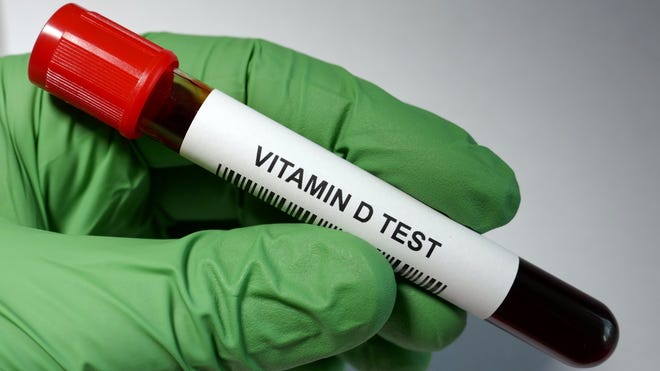Ask the Pharmacist: What to do when your calcium is high

Your body is amazingly skilled at maintaining homeostasis. It’s kind of amazing how your body maintains tight control over calcium levels, especially the amount that is circulating in your blood at any given moment. For example, all these methods are done involuntarily by your body to keep your serum calcium at a normal range, usually somewhere between 9 and 10, but it differs depending on your age.
- Your intestines absorb calcium from foods that you eat.
- Your bones give up and take in calcium so there is a dynamic movement of calcium in and out of your skeleton.
- Your kidneys reclaim calcium or excrete it into your urine.
When the blood levels drop below normal, your four tiny parathyroid glands immediately rescue levels by secreting parathyroid hormone (PTH) into your blood which tells your bones to release some into the blood and do it NOW! People with elevated PTH levels are at higher risk for osteoporosis. PTH levels are measured by a simple blood test. If it’s high, I recommend you read Dr. Norman’s work at parathyroid.com.
Physicians will evaluate vitamin D if the PTH is elevated, and if the D is low, they will tell you to supplement. This can be very harmful and is the wrong thing to do in most cases, because if the PTH is elevated, and your D is low, it’s low because your body’s trying to protect you from more calcium!
A person’s calcium can be evaluated several ways. Usually a “serum” calcium is measured by a blood test which tells you how much calcium is bound to a protein. There is an “ionized calcium” blood test which tells you what portion is free. If you have so much calcium that it’s spilling into your urine in high amounts which is called hypercalciuria. To find out take a test called a “24 hour urine calcium test.”
If your calcium is high, ask your physician about these ideas to see if they’re right for you:
Vitamin K2
Vitamin K2 drives calcium out of the blood and puts it back into the bone. It reduces serum calcium.
Bisphosphonates
The category of bisphosphonate drugs (i.e. Fosamax) can be used for a short term to remove calcium from the blood and put it back into the bones. It will reduce serum calcium.
Reflux drugs
Medications like famotidine (Pepcid) or omeprazole (Prilosec) can quickly reduce the absorption of many minerals and it can be quite potent.
Follow a low calcium diet
Meat and poultry, shrimp, seafood, green beans, eggs (and egg substitute), oatmeal, squash, nuts, rice, peas, Brussels sprouts, tangerines, kiwi and fruit juice.
Switch diuretics
If you are taking a thiazide diuretic like HCTZ (hydrochlorothiazide), this will cause you to retain calcium. By taking a “loop” diuretic such as furosemide, you will reduce calcium levels.
Sometimes surgery for a parathyroid adenoma is necessary, these are diagnosed by specific scans on the neck. Hyperparathyroidism is a common cause for elevated calcium levels.
To learn more about all this, sign up for my free newsletter at suzycohen.com and I’ll send you a more comprehensive version of this article.
More:Ask the Pharmacist: NAC supplements going away soon
And:Ask the Pharmacist: Four remarkable medicinal uses for baking soda
Also:Ask the Pharmacist: How glutathione is depleted from the body
Suzy Cohen is a registered pharmacist. The information presented here is not intended to treat, cure or diagnose any condition. Visit SuzyCohen.com.